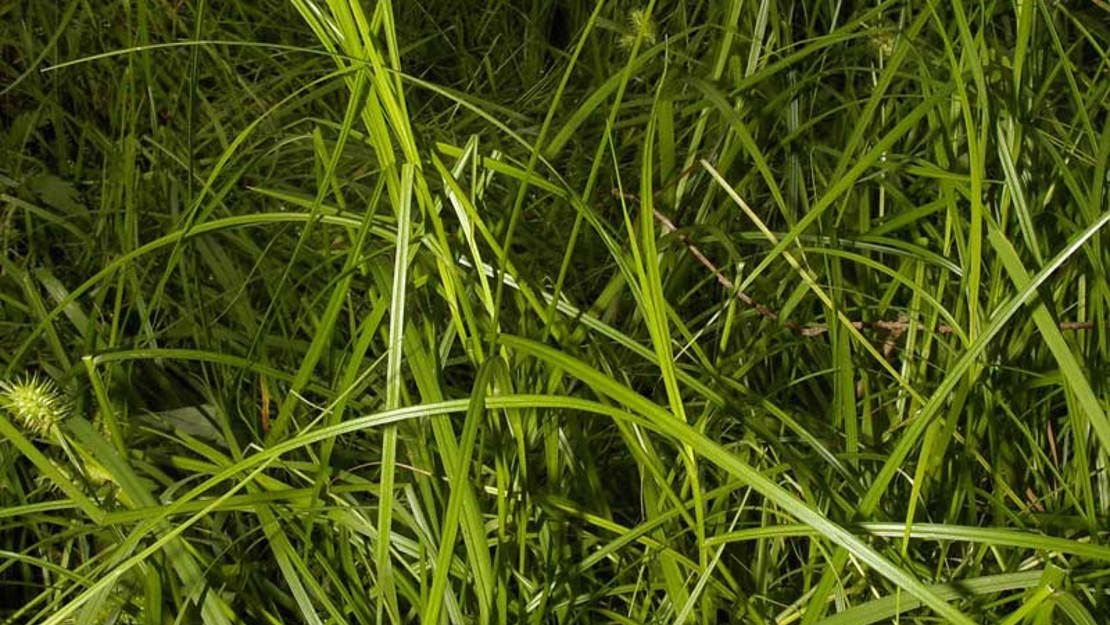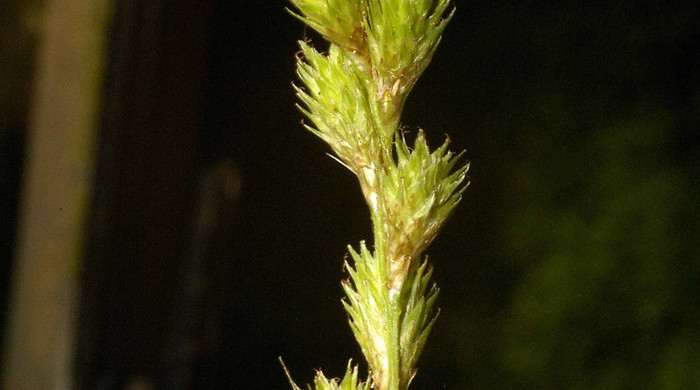Carex scoparia
Carex scoparia
Family: Cyperaceae
Origin: North America

Regional Pest Management Plan (RPMP) status
- Aotea — Eradication
- Whole region — Sustained control
- Hauraki Gulf Controlled Area Notice pest
General description
Dense, green grass-like perennial sedge < 90 cm tall. Flower spikes are oblong, brown/green and held in inflorescences borne in late spring – early summer. Seeds ripen in summer-autumn.
What you need to know
To help protect our environment:
- You must not breed, distribute, release or sell Carex scoparia on Aotea/Great Barrier Island group.
- You must not plant Carex scoparia on Aotea/Great Barrier Island group.
From 1 September 2021, you:
- will not be allowed to breed, distribute, release or sell Carex scoparia within the Auckland region.
- will not be allowed to plant Carex scoparia within the Auckland region, unless you are transferring an existing plant on your land to another location within the boundaries of the same property.
- must destroy any Carex scoparia on land that you occupy if it has been planted in breach of the above rules and you are directed to do so by an authorised person.
Auckland Council will control Carex scoparia at all sites within the Aotea/Great Barrier Island group where it is known to occur.
If you see Carex scoparia anywhere on Aotea/Great Barrier Island group, please report it to Auckland Council at pestfree@aucklandcouncil.govt.nz.
Habitats
Freshwater wetlands, lake margins, roadsides.
Dispersal
Seeds dispersed by movement of contaminated soil and possibly waterfowl. Human-mediated dispersal through contamination of machinery.
Impact on environment
Outcompetes native wetland plants and alters habitat for native fauna.
Control
Site Management
Follow up treated areas 3 times per year. Encourage natural regeneration of native plants or replant treated areas where possible after 2-3 treatments to establish dense ground cover and minimise reinvasion.
Recommended approaches
Do not attempt to undertake control of this species on Aotea/Great Barrier Island group. Please report to Auckland Council if seen on Aotea/Great Barrier Island group.
Physical control
Method: Dig out.
Plant parts requiring disposal: Seeds and rhizomes.
Disposal options: Remove to greenwaste or landfill if practical.
Biocontrol
Biocontrol is currently not available for this species.
Community agrichemical control recommendations
No qualifications:
For small infestations: Foliar spray with 15ml glyphosate green per 1L of water.
Basic Growsafe certified:
For medium to large infestations: Foliar spray with 150ml glyphosate green per 10L of water.
Caution: When using any herbicide or pesticide please read the label thoroughly to ensure that all instructions and safety requirements are followed.




